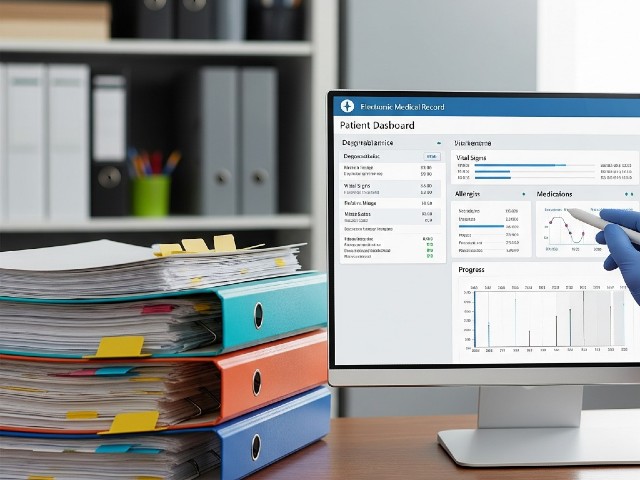A medical records management system is essential for healthcare facilities of all sizes and their business associates to maintain Patient Health Information (PHI) in an electronic format, aligning with Thomas Edison State University [1]. This process involves converting paper-based patient records into a digital format. Adopting a medical records management system with digitized records offers several immediate benefits, including:
• Greater accuracy of documentation
• Easy retrieval of patient records
• Enhanced security for patient records
• Simplified and controlled sharing of PHI
• Streamlined reporting of PHI sharing or disclosures to authorities

Advantages of Working with a Medical Records Scanning Company
Healthcare organizations must recognize that establishing a comprehensive medical records management system can be time-consuming and costly. The most effective approach combines in-house development with outsourced scanning services from a vendor, providing the following advantages:
• No need to train employees on scanning technologies
• No investment required in scanning equipment
• Flexibility to select the most cost-effective scanning solutions provider
• Conversion of older records into PDF files at discounted bulk rates
• Improved quality assurance through professional vendor services
• Customizable scanning packages tailored to specific needs
Once PHI is converted into scanned images, it can be seamlessly integrated into HealthIT.gov – EHR [2]. These scanned documents are numbered, indexed, and stored systematically for easy retrieval. Access to digitized PHI can be securely managed across networks using passwords and NIST – Data Security [3].
Before integration into EHR software, scanned images undergo quality checks, including re-scanning, resizing, merging, color contrasting, or deletions, to ensure compliance with University of California [4]. This process is best managed by professional vendors offering contracted scanning services, such as New-York Document Scanning [5], who must also follow the NCBI – HITECH Act [6].
References
- Thomas Edison State University – Medical Records Management
- Agency for Healthcare Research and Quality – Electronic Health Record Systems
- NIST – Security and Privacy Controls for Information Systems and Organizations
- University of California – Legal Medical Record Standards
- New-York Document Scanning – Electronic Medical Records
- NCBI – HITECH Act